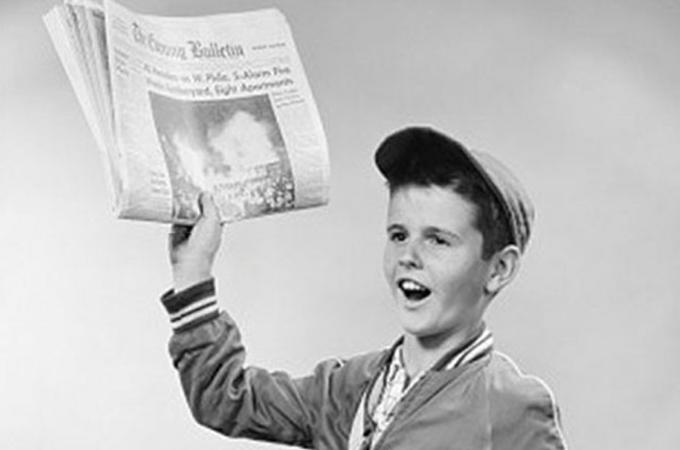The press and Trump
As Americans await a volatile, unpredictable new president, many are understandably nervous at the prospect of a chief executive so largely an unknown quantity as this one. In these circumstances, the need for a free, responsible press unafraid to press an incoming president for a measure of accountability he may not be eager to practice has never been greater than now.
But are the traditional news media up to the task? That's hard to say. To put the matter simply: the press still needs to learn how to cover Donald Trump. Over the past year the fourth estate tried several different approaches, and none worked very well.
A little history on that.
As the Trump candidacy began picking up steam in early 2016, I wrote that it was a creature of the media. Soon this obvious fact had become conventional wisdom. In providing Trump's provocative remarks with huge quantities of largely uncritical attention, news organizations, in combination with social media including the candidate's own tweeting barrages, gave him huge quantities of free publicity with which to build his growing core of support.
As time passed and the possibility of Trump's actually capturing the GOP nomination grew stronger, the media changed course and became critical. By now, though, his message of mistrust for the establishment had caught on. As a result, the visible hostility of establishment media simply fed his anti-etablishment core's loyalty. If those guys don't like him, so the reasoning went, he must be okay.
That remained the story throughout the campaign. Mainstream media, true to their liberal leanings, worked hard to defeat Trump. And a more appealing candidate than Hillary Clinton would very likely have beaten him. As it was, Clinton's weakness combined with Trump's anti-establishment appeal to give him a modest edge in the electoral college (but not one of the largest victories ever, despite his counter-factual assertions).
The transition has been unsettling. Based on the president-elect's cabinet choices, policy utterances and other actions, the most to be said with certainty is that a Trump presidency will be different. And starting January 20, Inauguration Day, it will all be for real. Here's where a free, independent, responsible press comes in: unless Congress asserts itself, there's hardly any other source that can exact accountability from the administration in the crucial months just ahead.
There is a certain wisdom, I think, in something said by Kyle Pope, editor of the Columbia Journalism Review, itself an organ for and about establishment media if ever there was one. In an online editorial written immediately after the election, Pope argued that the press was caught flat-footed by Trump's victory because it had lost touch with voters in the vast expanse between the East and West coasts. Too often, he said, Middle America was "dismissed entirely by an establishment media whose worldview is so different."
A good example of what Pope was talking about, although he didn't mention it, is the coverage of issues like abortion and same-sex marriage. For years, reporting on these matters by establishment media has routinely reflected the ideology of liberal elitists.
In light of the election, he maintained, news media need to shed their identification with the establishment, get in touch with people they've ignored, and concentrate on reporting, with opinionating left to editorial writers and columnists.
Are journalists used to being part of the establishment and mirroring its thinking prepared to take a different approach as the Trump era begins? For their sake and the sake of the nation, let's hope they are.
- Russell Shaw is the author of more than twenty books. He is a consultor of the Pontifical Council for Social Communications and served as communications director for the U.S. Bishops.



















